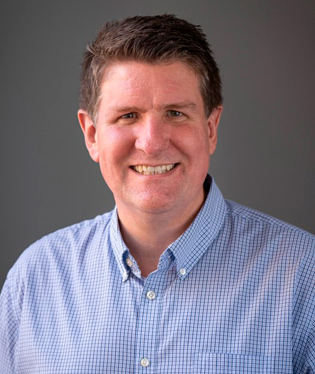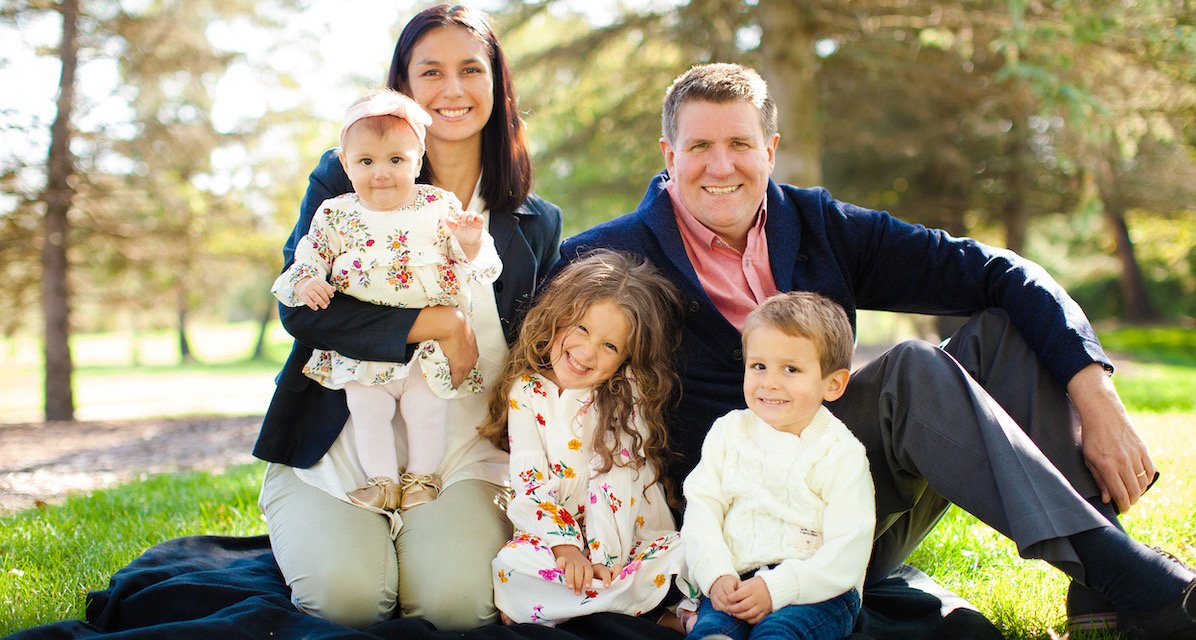Speaking the Language of Ministry

During the warm Washington summers of his childhood, Associate Teaching Professor of Spanish Jeff Stevenson would pick cherries in his grandparents’ orchards. Working alongside native Spanish speakers and watching his grandparents interact with them sparked a curiosity that led to a lifetime of learning.
“It was not only appreciation; they enjoyed each other,” says Stevenson. “It was a human relationship in addition to a contractual relationship. I grew up hearing Spanish at a very early age and I wanted to start understanding what they were saying. I just enjoyed learning about these people that I had grown up with.”
His love for the Spanish language and Latino culture led to a career as a professor. After earning an M.Div. from Reformed Theological Seminary, a Ph.D. from University of Washington and 10 years living in Chile and running a study abroad program for Middlebury College, Stevenson is making the move to the Boston area and bringing the joy of language-learning to Gordon.
Having earned his Ph.D. in linguistics, Stevenson knows that studying a language is hard work. But when studying Hebrew, his progress toward reading Old Testament Scripture in the original language came to life in a new way when he “started listening to some modern Hebrew music from Israel, and it motivated me to want to understand how this biblical language that I was studying sounded today as well.”
As a professor, he wants to help his students—especially first-year students—find that same motivation for themselves, so he strives to teach in a way that piques students’ interest “beyond fulfilling a degree requirement.” To capture their imagination, he brings culture into the classroom, hoping to transform their perspectives like his was—from unexcited to opting into another year of studying Spanish. “And then there’s love—you fall in love with the language,” Stevenson says.
Entering into Gordon’s classrooms and Zoom sessions, Stevenson says he is excited to prepare students for global impact through language education, equipping and inspiring them to apply it to co-vocational ministry. A firm believer in this concept, Stevenson says Christians can be a “full-time minister” in any career, not just as missionaries in the conventional sense. “I am interested in training and working with students who might occupy some sort of position of influence in any number of spheres,” he says. “There are multiple on-ramps to get involved in meaningful cross-cultural work.”
For Stevenson, those on-ramps have included founding Proyecto Nehemías, a Spanish-language publishing house that produces content on faith and work, whole-life discipleship, theological education and resilience in ministry for digital and print distribution.
Stevenson’s visionary approach to teaching and multidisciplinary skillset, says Chair of the Department of English, Languages and Linguistics Chad Stutz, embodies the essence of a Christ-centered liberal arts education.
“Not only does Jeff have a rich and varied background in Spanish, linguistics, theology and intercultural studies, but he also brings incredible vision, creativity and a genuinely pastoral heart to his work,” says Stutz. “He exemplifies that rare balance between wisdom and approachability, and I’m thrilled that our students will have the opportunity to benefit from his vast experience and expertise.”
Arriving at Gordon during a time of transition—from coronavirus to the recent merging of the languages departments—Stevenson hopes to encourage his students to pursue their passions just as he has done, and to do so with a mindset of ministry. “‘Preparing the people of God for the work of God’—that’s a big project, and I would love to be a part of that,” Stevenson says. “That is really how I approach Christian higher education.”
Article by Anna Kinkade ’21, psychology and communication arts
 The Bell
The Bell